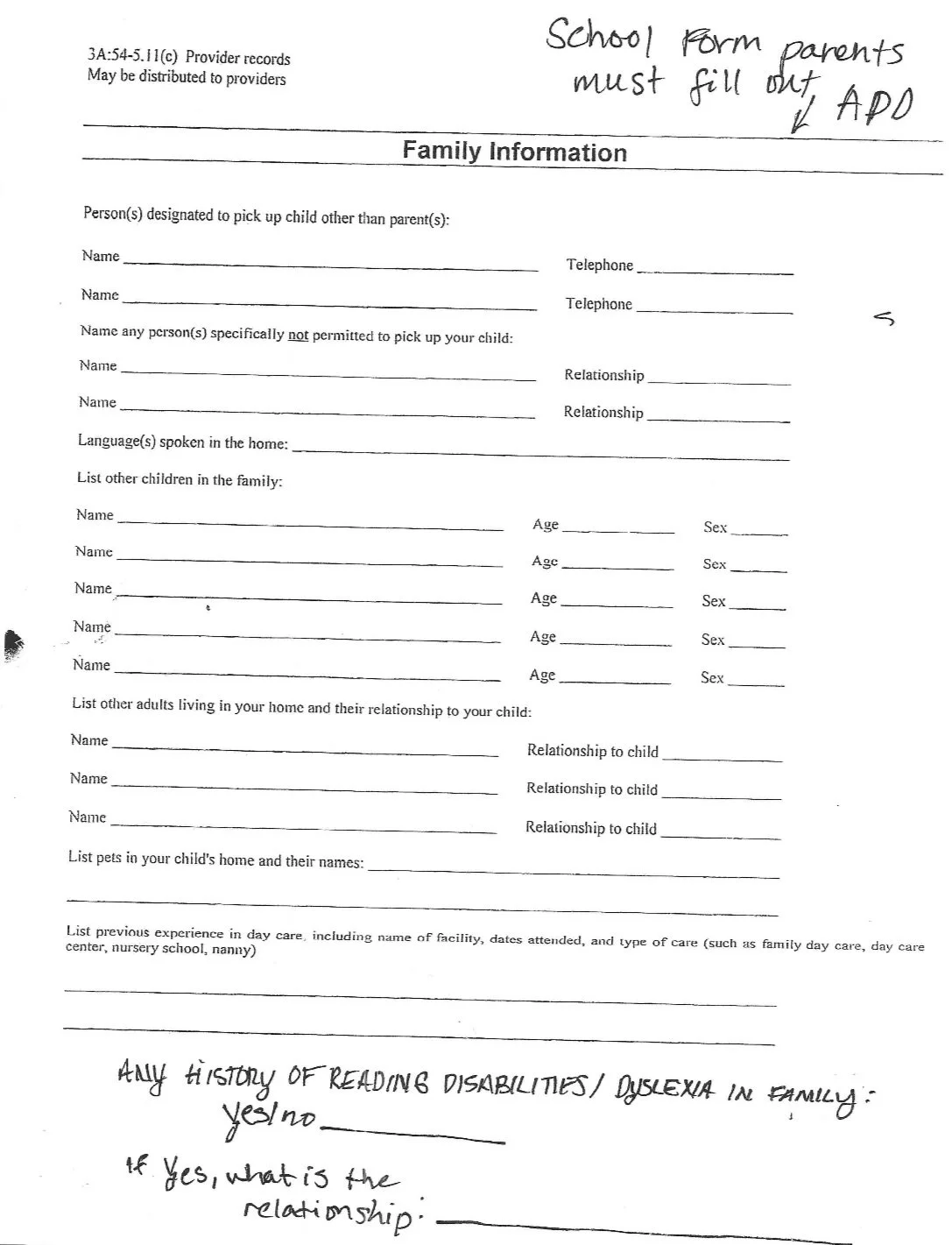Revolutionizing Screening
Why not ask this question, "Does any biological family member have dyslexia?”. On a pediatrician’s Universal Screening Form, there are questions relating to chronic medical conditions, but it does not ask about dyslexia, which is a neurologically-based chronic disorder. Not only will this help the child, but this is the cheapest and fastest screening method possible to identify children who may need specialized learning instruction.
Doctors always ask on the questionnaire before someone sees a doctor for the first time, about their family history regarding illnesses. If dyslexia is not treated, not only will one's self-esteem suffer, but they may also suffer from severe emotional issues caused by dyslexia. As we now know, the number of adults experiencing mental health problems is at an all-time high of 19.86%.
Parents - Knowledge is POWER!!!
Parents may not support the identification and subsequent labeling of children with LD because it felt simply wrong to “label” or there was a fear of getting their diagnoses wrong. This fear needs to be dispelled with facts: Dyslexia and Intelligence are not related. 50% of the scientists at NASA have dyslexia. Some of the greatest minds have dyslexia, and credit the way their brains are wired for creative out of the box thinking that has led to their success.
Revolutionizing Screening
Why not ask this question, "Does any biological family member have dyslexia?”. On a pediatrician’s Universal Screening Form, there are questions relating to chronic medical conditions, but it does not ask about dyslexia, which is a neurologically-based chronic disorder. Not only will this help the child, but this is the cheapest and fastest screening method possible to identify children who may need specialized learning instruction.
Doctors always ask on the questionnaire before someone sees a doctor for the first time, about their family history regarding illnesses. If dyslexia is not treated, not only will one's self-esteem suffer, but they may also suffer from severe emotional issues caused by dyslexia. As we now know, the number of adults experiencing mental health problems is at an all-time high of 19.86%.
We need two additions regarding a child’s family history of dyslexia: 1. The Universal Health Record (done at the pediatrician’s office after the physical). 2. The screening form filled out by the parents, for the student to enroll in Pre-K or Kindergarten.
Through these flagged forms, 40-60% of children would already have been identified since this would happen before Pre-School and/or no later than the first day of Kindergarten. The child would already have been flagged as a direct, first-degree link to inheriting dyslexia.
Pediatricians are the first people families trust with their children. This is the cheapest and fastest way to screen kids that may inherit dyslexia. When filling out the Universal Health Form, there needs to be an additional box below the Preventative Health Screening box: It should read: History of Reading Disability/Dyslexia in Family: What member of the family. This matters as research has shown if a parent has dyslexia the child has a 40-60% chance of inheriting dyslexia, if a parent and sibling have dyslexia, the number jumps to an 80% chance of inheriting dyslexia. It is critical to be proactive in learning about a close family member's "family history" of reading problems or dyslexia so that children do not suffer needlessly from mental health issues, especially since Child Health Universal Screening can screen this child in the quickest and most cost-effective way possible.
From A Pediatrician’s POV
Dr. Jonathan Wong is a pediatrician in Bergen County, New Jersey. In this short audio segment, he evaluates the outcomes of adding an LD/Dyslexia section to the Universal Health Forms commonly found in his office. We asked Dr. Wong for his opinions on the following.

